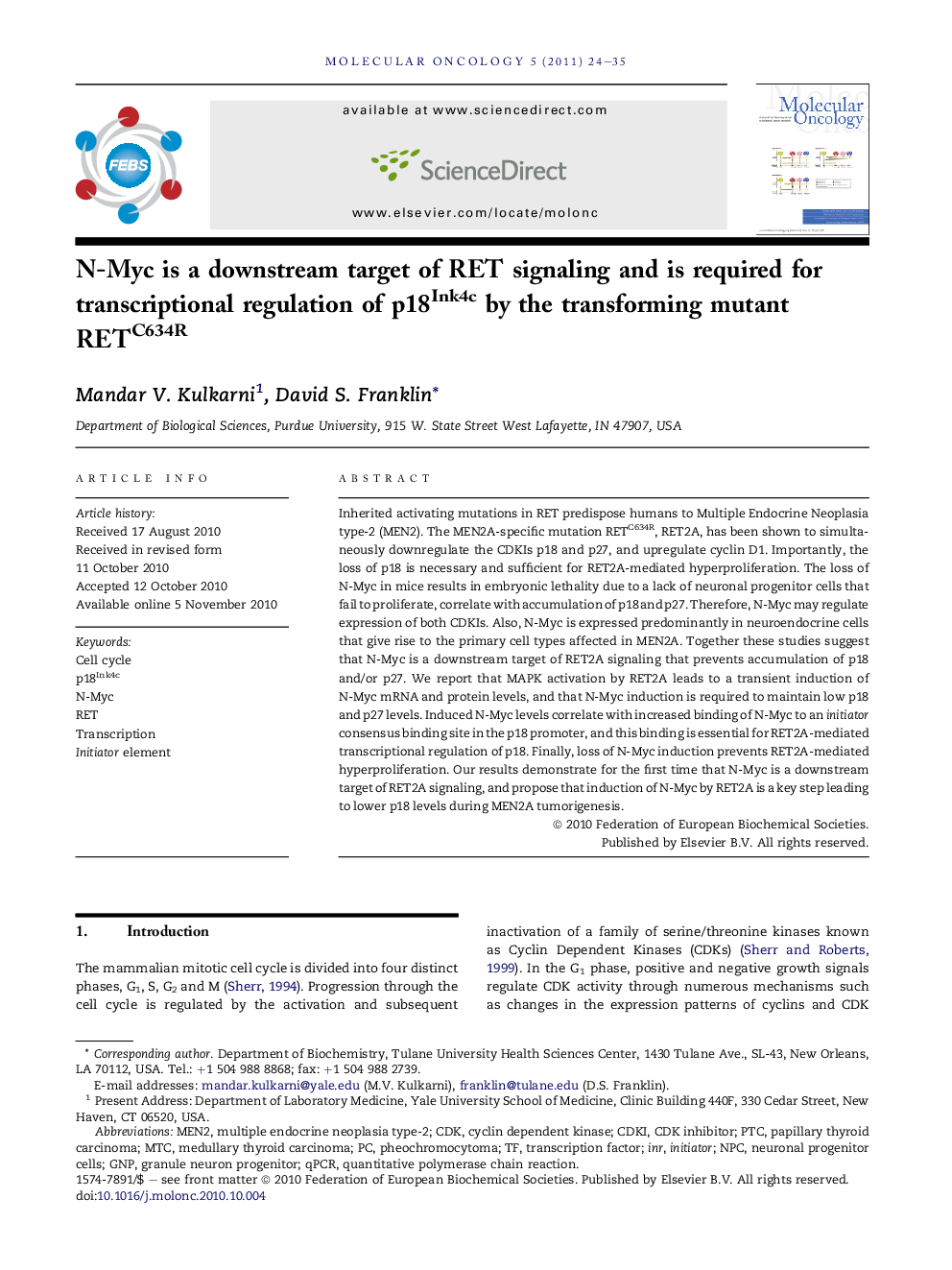| Article ID | Journal | Published Year | Pages | File Type |
|---|---|---|---|---|
| 10914927 | Molecular Oncology | 2011 | 12 Pages |
Abstract
Inherited activating mutations in RET predispose humans to Multiple Endocrine Neoplasia type-2 (MEN2). The MEN2A-specific mutation RETC634R, RET2A, has been shown to simultaneously downregulate the CDKIs p18 and p27, and upregulate cyclin D1. Importantly, the loss of p18 is necessary and sufficient for RET2A-mediated hyperproliferation. The loss of N-Myc in mice results in embryonic lethality due to a lack of neuronal progenitor cells that fail to proliferate, correlate with accumulation of p18 and p27. Therefore, N-Myc may regulate expression of both CDKIs. Also, N-Myc is expressed predominantly in neuroendocrine cells that give rise to the primary cell types affected in MEN2A. Together these studies suggest that N-Myc is a downstream target of RET2A signaling that prevents accumulation of p18 and/or p27. We report that MAPK activation by RET2A leads to a transient induction of N-Myc mRNA and protein levels, and that N-Myc induction is required to maintain low p18 and p27 levels. Induced N-Myc levels correlate with increased binding of N-Myc to an initiator consensus binding site in the p18 promoter, and this binding is essential for RET2A-mediated transcriptional regulation of p18. Finally, loss of N-Myc induction prevents RET2A-mediated hyperproliferation. Our results demonstrate for the first time that N-Myc is a downstream target of RET2A signaling, and propose that induction of N-Myc by RET2A is a key step leading to lower p18 levels during MEN2A tumorigenesis.
Keywords
Related Topics
Life Sciences
Biochemistry, Genetics and Molecular Biology
Cancer Research
Authors
Mandar V. Kulkarni, David S. Franklin,
